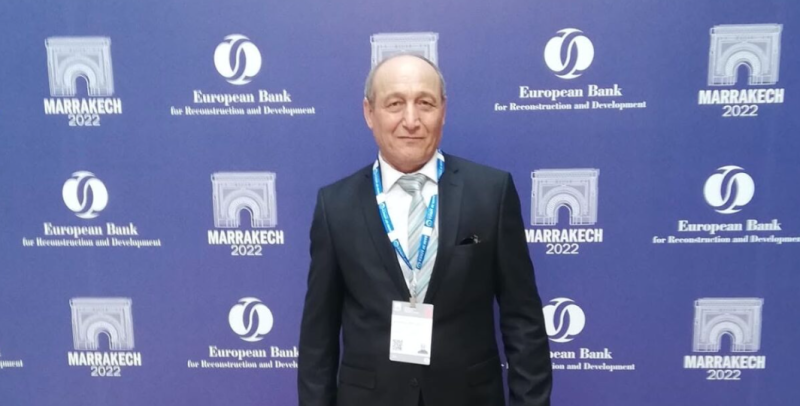Countries
Solidarity campaigns
Uzbekistan: Obstacles to Registration of Human Rights NGO Akbaskur in Karakalpakstan

The experience of activists seeking to legally register as a regional non-governmental organization (NGO), Akbaskur, in Karakalpakstan reflects the challenges faced by civil society organizations in Uzbekistan.
Despite repeated attempts to obtain state registration, which began in December 2019, Akbaskur (originally named Chiroq) has faced bureaucratic hurdles, contradictory administrative requirements, and direct pressure from local authorities and law enforcement agencies.
In early December 2019, a group of activists living in Karakalpakstan decided to establish a human rights organization focused on protecting labor rights. On December 28, 2019, they submitted their founding documents for registration to the Ministry of Justice of Karakalpakstan. However, their initial application was rejected twice, each time with the Ministry of Justice finding “errors” in the charter and demanding that they be corrected.
The Ministry of Justice does not usually provide a comprehensive list of “errors” that apply to founding documents. Instead, new errors can be identified each time with the requirement to repeatedly correct them. According to Uzbek law, the documents required to register an NGO must be submitted to the Ministry of Justice or its regional offices within two months of the founding meeting. Delays in the registration process often result in founders having to hold repeated meetings and thereby missing the deadline.
In January 2025, the Akbaskur initiative group decided to resume the procedure for obtaining state registration, but this time the Karakalpakstan authorities created artificial barriers that prevented them from even collecting the founding documents.
The registration of NGOs in Uzbekistan is regulated by Cabinet of Ministers Decree No. 57 (dated March 10, 2014), which sets out strict and burdensome requirements. These include:
- A requirement of at least 10 initiators for both national and regional organizations (Article 13, subsection “e”).
- Verification of founders’ data which means that their signatures and personal data (surname, first name, date of birth, place of residence) must be confirmed and stamped at their place of residence, work, study, or military service (Article 14).
Although these provisions may seem standard, in practice they can be easily abused by local authorities to block applications at an early stage, even prior to submitting documents for registration with the Ministry of Justice.
Legal contradictions?
After the founding meeting in February 2025, the leader of the Akbaskur initiative group, Azimbay Ataniyazov, began collecting the necessary documents and applied to the local “mahalla committees” where the founders lived to confirm their place of residence, as required by the Cabinet of Ministers Resolution No. 57.
Mahalla committees are “citizen self-government bodies” that formally have the status of NGOs, but in reality, are organs subordinate to local authorities that provide services to the population as social welfare assistance.
Ataniyazov was faced with the situation that four chairmen of the mahalla committee in Turtkul district refused to formally confirm information about their residents, citing a verbal order from the head of the Association of Mahallas of the Turtkul District, Botir Zakirjanov, who instructed them “not to put any stamps on documents of residents of Nukus,” which is where Ataniyazov happens to live.
The Turtkul district mahalla officials also referred to Cabinet of Ministers Resolution No. 789 (dated October 3, 2018), which aims “to reduce the number of certificates issued by local authorities”. This resolution allegedly prohibits mahallas from issuing documents confirming residence.
However, this assertion contradicts Article 14 of an earlier decree No. 57 (2014), which requires such confirmation for the registration of NGOs from government agencies, naming also mahallas among them. This legal inconsistency has led to a deadlock, blocking the collection of founding documents for the registration of Akbaskur.
It appears that the authorities of the Turtkul district have created artificial problems for the initiative group. The mahalla committee in Nukus and two other districts of Karakalpakstan had no trouble in approving the necessary information. However, it is unclear why officials in some districts comply with the law, while others find ways to obstruct it and whether these actions are based on instructions from those higher up the chain of command.
Letters to the Ministry of Justice and the hokimiyat of the Turtkul district to clarify the situation have been unsuccessful. The response, signed by the deputy hokim of the Turtkul district, reiterated the excuse that – allegedly – Mahalla committees do not issue any documents to confirm the place of residence of citizens in accordance with the 2018 presidential decree.
What is more worrying is that it is not only bureaucratic obstacles that prevent civil society groups from registering their NGOs. Akbaskur members have also been subjected to intimidation and psychological pressure from the authorities. In March 2025, one of the founders withdrew from the initiative citing threats against his family.
Akbaskur’s case highlights how inconsistent legislation, unnecessary bureaucracy, and politically motivated interference can create fertile grounds for blocking civil society initiatives, particularly those launched by grassroots activists. It demonstrates that, despite the existence of a legal framework, its procedures and implementation remain vulnerable to arbitrary interpretation and informal power structures.
Source: Uzbekforum.org
